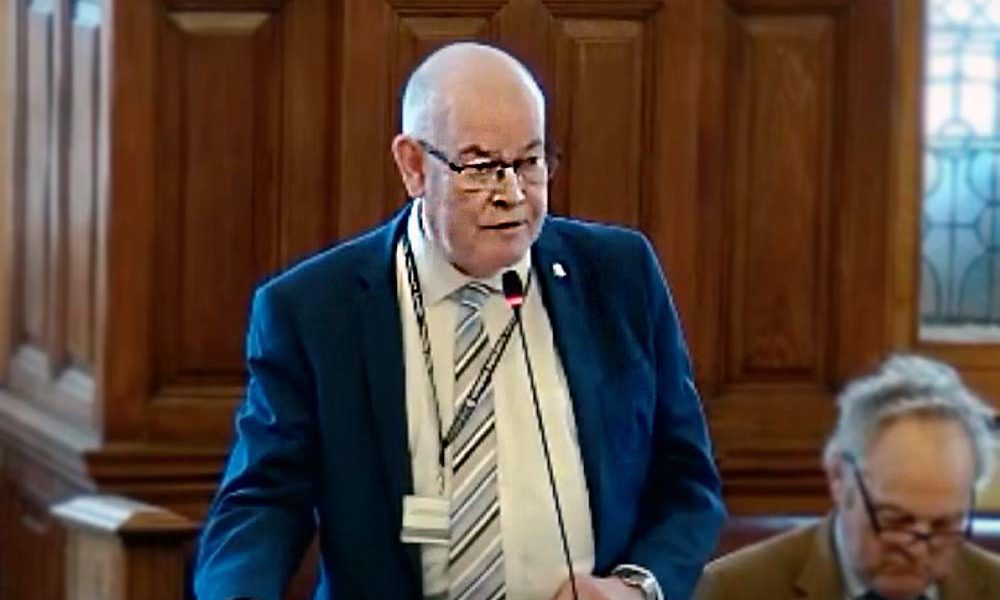East Riding Council Raises Alarm Over Care Sector Pressures
Councillors in the East Riding of Yorkshire have expressed grave concerns about the recent government budget’s impact on the region’s care sector. A motion introduced by Councillor Jonathan Owen, with widespread support at Full Council, underscored the increasing financial pressures faced by care providers and called for immediate action from the Labour government to address the crisis.
In his speech at Beverley’s county hall, Councillor Owen described the care market as reaching a critical “tipping point,” citing escalating costs as a primary issue. He highlighted the financial strain caused by the rise in the national minimum wage and increased employer National Insurance contributions, which disproportionately affect smaller care providers that form the backbone of the sector.
The councillor and former leader of East riding Council drew attention to the stark funding disparity between the NHS and social care. While the NHS received billions in additional funding, the care sector was allocated just £600 million in the recent budget. Councillor Owen said that this imbalance fails to reflect the essential role social care plays in supporting vulnerable residents, further undermining efforts to achieve parity of esteem between the two systems. Without urgent financial support, the sector risks being unable to meet the growing demand for care services.
This sentiment was echoed by industry leaders, including HC-One CEO James Tugendhat, who warned that rising costs and inadequate local authority fee rates are jeopardizing the sector’s sustainability. Tugendhat pointed out that many care providers struggle to remain viable when fees do not cover the true cost of delivering care services.
The UK Care Market Explained
The UK’s care market is a vital and complex system that provides essential services for older adults, individuals with disabilities, and others needing daily assistance. However, the sector faces persistent challenges that threaten its sustainability. Key among these are financial pressures stemming from increased wage demands, such as the national minimum wage, and changes to employer National Insurance contributions. These rising costs hit small care providers—the backbone of the industry—particularly hard.
In addition to financial strain, the care market struggles with inadequate funding levels. While the government’s £600 million pledge for the sector is welcome, it pales in comparison to the growing shortfall in resources. Advocates argue for structural reforms to place social care on an equal footing with the NHS, acknowledging its indispensable role in maintaining the nation’s health and wellbeing. Without collaborative efforts and comprehensive solutions, the sector’s ability to support vulnerable populations is at serious risk.
Watch Full Council
The Motion in Detail
The council’s motion, which focused on the pressing challenges within the care sector, stated:
“That this Council: In light of the government’s budget, expresses deep concern over the impact on provision of care to our most vulnerable and growing number of residents in the East Riding through the impact of minimum wage rises, employers national insurance contribution changes and other pressures on small businesses, many of whom make up the core of our care market providers and further expresses deep concern that the £600 million proposed to support the care market nationally hardly touches the shortfall of need in this already struggling key sector, and again fails to address the need to give social care parity of esteem with the NHS in their contribution to the health and care needs of our population and that ERYC urges all our local MPs to raise these concerns as a matter of urgency with government.”
The motion was seconded by Councillor Saribal and later amended by Councillor Denis Healy of the Liberal Democrats. The amendment called for cross-party talks to develop a long-term funding strategy for social care, emphasizing the need for sustainable solutions to meet the sector’s growing demands.
The revised motion, highlighting the need for collaborative discussions and equitable funding for the care market, was passed by full council. Councillors expressed their shared commitment to tackling these challenges and securing a viable future for social care.
About Councillor Owen
Councillor Jonathan Owen has dedicated his career to improving the lives of East Riding residents. A former leader of East Riding Council and chair of the Health & Wellbeing committee, he has consistently championed initiatives to safeguard and enhance care services. His work reflects a steadfast commitment to standing up for patients and those in need of care, ensuring their voices are heard.
Having represented both Driffield and Rural, and East Wolds and Coastal wards, Councillor Owen brings a deep understanding of the diverse challenges faced by market towns and rural coastal communities. Known for his pragmatic and honest approach, he has worked across political divides to secure the best outcomes for residents. Councillor Owen takes pride in having been part of a council nationally recognised for its prudent financial management and delivery of top-tier services. He continues to advocate for equitable support for vulnerable residents and sustainable solutions for local businesses.


